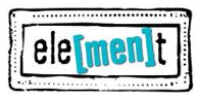Challenges in Translating PrEP Interest Into Uptake in an Observational Study of Young Black MSM
Abstract
Background:HIV incidence among US young, black men who have sex with men (YBMSM) is high, and structural barriers (eg lack of health insurance) may limit access to Pre-exposure prophylaxis (PrEP). Research studies conducted with YBMSM must ensure access to the best available HIV prevention methods, including PrEP.Methods:We implemented an optional, nonincentivized PrEP program in addition to the standard HIV prevention services in a prospective, observational cohort of HIV-negative YBMSM in Atlanta, GA. Provider visits and laboratory costs were covered; participant insurance plans and/or the manufacturer assistance program were used to obtain drugs. Factors associated with PrEP initiation were assessed with prevalence ratios and time to PrEP initiation with Kaplan–Meier methods.Results:Of 192 enrolled YBMSM, 4% were taking PrEP at study entry. Of 184 eligible men, 63% indicated interest in initiating PrEP, 10% reported no PrEP interest, and 27% wanted to discuss PrEP again at a future study visit. Of 116 interested men, 46% have not attended a PrEP initiation appointment. Sixty-three men (63/184; 34%) initiated PrEP; 11/63 (17%) subsequently discontinued PrEP. The only factor associated with PrEP initiation was reported sexually transmitted infection in the previous year (prevalence ratio 1.50, 95% confidence interval: 1.002 to 2.25). Among interested men, median time to PrEP initiation was 16 weeks (95% confidence interval: 7 to 36).Conclusions:Despite high levels of interest, PrEP uptake may be suboptimal among YBMSM in our cohort even with amelioration of structural barriers that can limit use. PrEP implementation as the standard of HIV prevention care in observational studies is feasible; however, further research is needed to optimize uptake for YBMSM.

